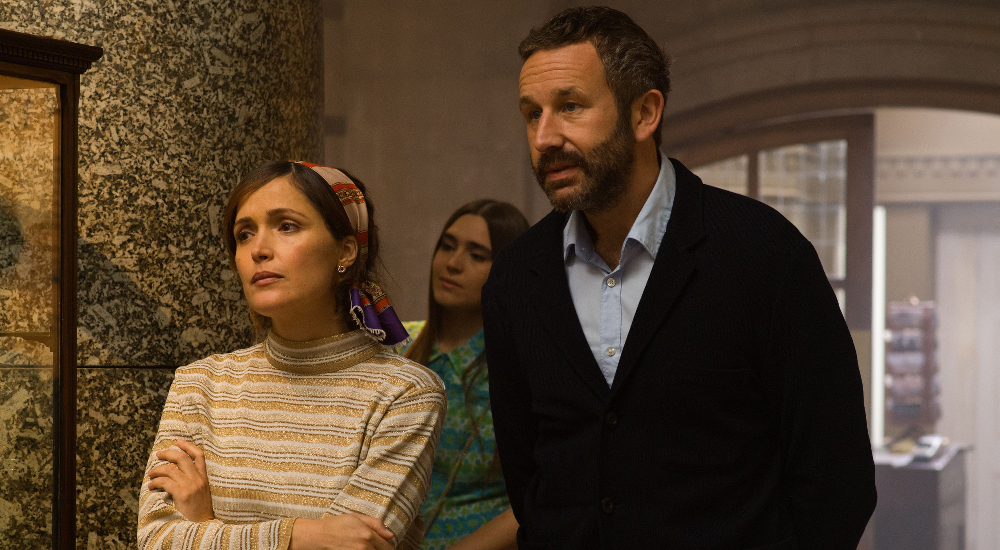“You listened to it before me?”
Combining the perfect amounts of humor, drama, music and romance, Jesse Peretz’s Juliet, Naked proves an authentic look at love, loss, and all that lies in-between.
Adapted from the best-selling novel by Nick Horby (An Education), Juliet, Naked centers around Annie, a 30-something museum director who feels trapped in a long-term relationship with Duncan, a Tucker Crowe fanatic who runs an online forum and lives for all things involving the old school rocker. Though their relationship suffers from Duncan’s obsession, they have both gotten comfortable with each other, a feeing that goes unrecognized until an acoustic demo of Tucker’s hit record surfaces.
While the film possesses a unique style of comedy, it ultimately flourishes thanks to incredible chemistry between Rose Byrne and her two male co-stars. Embodying the role of Annie, Byrne presents a kind, successful, but overall frustrated woman who appears to be struggling with the direction her life has taken. Always dreaming for something bigger and better, she has led a life of compromise, a reality that doesn’t change until a chance encounter with her boyfriend’s music icon puts everything into perspective.
When Annie finally gets the nerve to confront her feelings, Juliet, Naked enters a unique space where it offers up a remarkable insight into love, loneliness and the ever evolving art of one’s own passion.
Both Chris O’Dowd and Ethan Hawke serve as strong supporting players to what is undeniably Byrne’s journey. One the unattentive boyfriend, the other a mere glimpse of the life one can have, they both provide forks in Annie’s destiny, granting the audience a look into the now, the potential future, and the unlikely path that life can take to get you where you need to be.
The film doesn’t complete its journey without falling victim to the occasional pitfall. The rare clichés hinder it from being something truly original, and the second act is fairly predictable as we appear to have a strong blend of You’ve Got Mail and Begin Again. I’m not necessarily complaining about the combination, but it is also something that should be mentioned.
Thankfully, the third act gives us the conclusion that we desperately need. It isn’t the full blown fairytale ending that we have grown accustomed to seeing, but in a sense that is what makes Juliet, Naked so good. Without offering up too much, or overdoing any single aspect, the character, their story, and their surroundings are real. Peretz gives us a snapshot that doesn’t necessarily have a beginning, middle and end, but rather a mere glimpse into the opportunities and decisions that one makes that ultimate shape our destiny.
Luckily the film itself doesn’t dig so deep philosophically; however, the gist is the same. Juliet, Naked is simple and pure, a compliment any modern day romantic comedy should gladly accept.
*This review originally appeared as part of our 2018 Sundance Film Festival coverage

